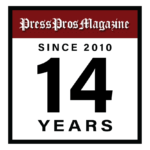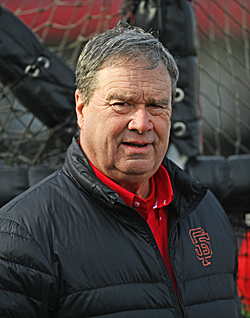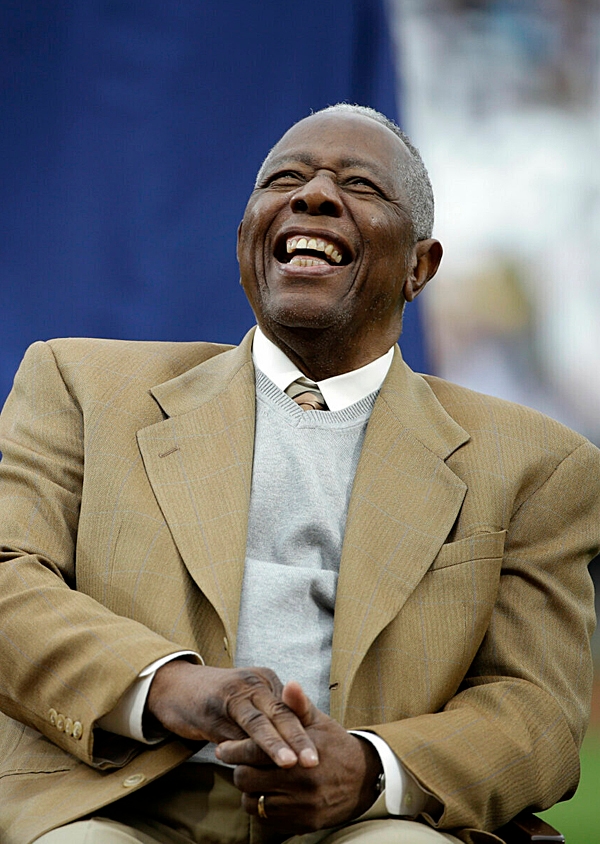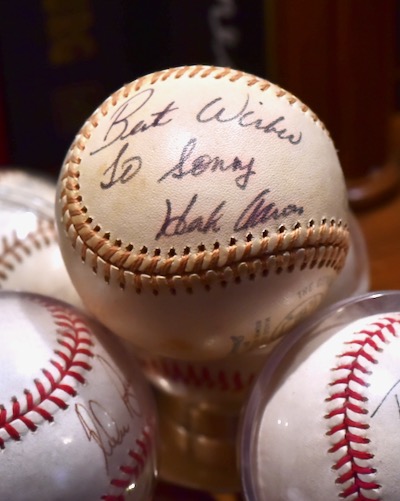Monday, January 22, marks the anniversary of the passing of a baseball legend, but unlike some, a man who for his fame enjoyed talking about the game as much as he did playing it. I met him once, and here’s the story.
 It was the summer of 1978, my second year in Double A baseball, umpiring in the oft-damp, but always steamy, Southern League. As it happened on this night, I was in Orlando, Florida for a game between the Orlando Twins and the Savannah Braves.
It was the summer of 1978, my second year in Double A baseball, umpiring in the oft-damp, but always steamy, Southern League. As it happened on this night, I was in Orlando, Florida for a game between the Orlando Twins and the Savannah Braves.
I worked the plate that night, along with my bases partner, and throughout the first four innings there were bolts of lightning that appeared beyond the centerfield fence at old Tinker Field, the spring training home of the Minnesota Twins. It was June, miserably hot, and prone to such thunderstorms in central Florida; and about an hour into the game the skies finally opened up, and it poured!

Publisher/Editor Sonny Fulks writes OHSAA and Ohio State baseball for Press Pros Magazine.
Being the crew chief as well as the plate umpire, the game was in my hands to delay – wait out – and I obligingly signaled everyone off the field while the grounds crew rolled out the tarp to cover the infield.
“This might be a while,” said an older black man, who was in charge of the ground crew. “This ain’t gonna’ be no Presbyterian rain, if you know what I mean. Nossir’, this is gonna’ be a Baptist baptizin’, sin-cleansin’ rain. Jest wanna’ let you know,” he smiled.
I nodded and headed for the umpire’s room, just up the tunnel from the first base dugout. Taking off my uniform shirt, chest protector, and changing into a dry t-shirt, I sat down to wait things out while my partner went in search of the clubhouse kids, and something to drink.
It had only been five minutes, it seemed, when there was a gentle knock on the door. I got up from my folding chair, opened the door, and looked right into the face of history.

Hank Aaron retired with 3,771 lifetime hits. And if you subtract his 755 career home runs…he still had 3,000 hits. (Photo courtesy of private collection)
“I’m Hank Aaron,” said the man at the door. “And I wondered if I could ask you some questions about our pitcher tonight…and, get out of the rain?”
Aaron was just two-years retired as a big league player, and working in the Braves player development system as a minor league director, and it was not unusual for farm directors, or organization scouts to ask the umpires about minor league players – pitchers, in particular. On that night, the one in question was a youthful Rick Mahler, who would go on to pitch in the big leagues for 13 years…with the Braves, and eventually the Cincinnati Reds for a time.
“You have a better look at the pitches than I do from the stands,” said Aaron, quietly, respectfully. “I just wondered what you thought. You see all the pitchers in the league.”
We talked about Mahler just briefly, when the grounds crew man stuck his head in the door and told me that it didn’t look good for resuming play that night. I nodded, he said he would keep me updated, and added, “Nice to see you, Mr. Aaron.”
Aaron nodded, asking the man about his family, and not the rain. After he left Aaron turned to me and said, “That man’s been working this job since the first time I played in this ballpark. You remember people like that.”
I had a couple of clean major league baseballs in my trunk, and Aaron was kind to sign one for me, and one for a friend back home. I knew that I would never be this close again to such immortality. The subject of Babe Ruth never came up, or talk about home run records. But I was dying to know…….
“Can I ask you about the perfect game that night in Milwaukee, back in 1959?” I asked him as he got up to leave.
“Sure you can,” said Aaron, flashing a broad smile. “You’re pretty young, and that happened a long time ago. How do you know about that.”
I explained that Harvey Haddix, who pitched twelve perfect innings for the Pittsburgh Pirates against the Milwaukee Braves that night, had played baseball with my high school coach at Piqua, Jim Hardman. Hardman was a catcher, and I told Aaron about what he (Hardman) used to say about Haddix’s curveball…that it looked like an egg falling off a Westinghouse [stove].”
 Aaron chuckled, quietly. He was a quiet man. “That’s a good one I’ve never heard before,” he said.
Aaron chuckled, quietly. He was a quiet man. “That’s a good one I’ve never heard before,” he said.
“Some of us on the Braves bench were actually rootin’ for Harvey that night because he was a good guy, and a lotta’ people liked Harvey Haddix. And let me tell you something else…if Harvey was a friend of your coach. People talk about Koufax, and how good his curveball was? Well Harvey’s curveball was just as good as Koufax.”
My partner was back by that time, and Aaron shook hands with us, thanked us for the time, for shelter from the rain, and said as he left, “It was nice to visit with you. No one’s asked me about Harvey Haddix for a long time.”
He hit 755 lifetime home runs, retired in 1976 as a member of the Milwaukee Brewers. And the remarkable thing about Hank Aaron is this one fact. If you subtracted his 755 home runs from his lifetime hits total, he still would have finished with 3,000 hits (3,016). He had 3,771 hits, and a career batting average of .305.
One of the true gentlemen I ever met, Aaron died in his sleep, peaceably, on January 22, 2021. You remember people like that.


